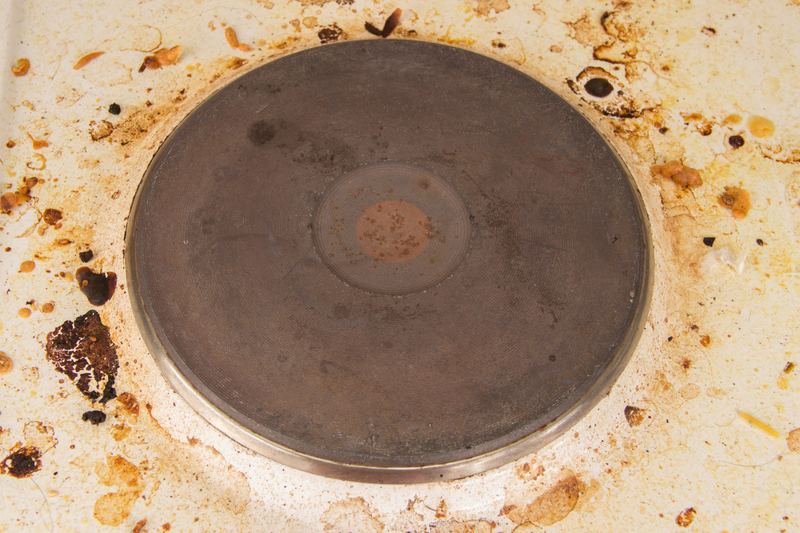How to Keep Your Home Damp Odor-Free
Posted on 15/08/2025
How to Keep Your Home Damp Odor-Free: Comprehensive Guide for Fresh Living
Are you struggling with persistent damp odors in your home? Unpleasant, musty smells often indicate excess moisture and can negatively impact indoor air quality and your well-being. Whether you live in a humid climate, a home with poor ventilation, or an older building, it's essential to take action against such odors. In this detailed guide, we'll explore practical steps and proven solutions to help you keep your home damp odor-free--ensuring a fresh, healthy, and inviting living environment.
Understanding the Causes of Damp Odors in the Home
Before we discuss how to eliminate musty smells, it's crucial to understand what causes damp odors in the first place. Identifying the root cause prevents recurring issues and helps you choose the right solution.
Main Sources of Damp Odors
- Excess moisture: High levels of humidity, water leaks, or poor drainage accumulate dampness, creating the perfect breeding ground for odor-causing mold and mildew.
- Condensation: Areas like bathrooms, kitchens, and basements are prone to condensation, leading to persistent dampness and that unmistakable musty smell.
- Poor ventilation: Inadequate airflow traps moisture indoors, allowing damp odors to build up over time.
- Ignored spills and leaks: Unattended water damage--no matter how minor--can seep into walls, floors, and furniture, resulting in lingering humidity and unpleasant odors.
- Clutter and poor cleaning habits: Stale air, dust, and dirt also contribute to unwanted smells, especially in rarely accessed or cluttered spaces.
Addressing these issues is the first step in your journey to a fresh-smelling home free from damp odor.

How to Keep Your Home Damp Odor-Free: Step-by-Step Guide
Tackling musty and damp odors involves a mix of cleaning, prevention, and continuous care. The following comprehensive steps will help you restore cleanliness and keep your home fresh and odor-free year-round.
1. Ventilate Your Home Properly
Improving air circulation is one of the simplest ways to reduce moisture and prevent the accumulation of damp smells.- Open windows and doors for at least 15-30 minutes daily to let fresh air flow through.
- Use ventilators and exhaust fans in bathrooms, kitchens, and laundry rooms to expel steam and moist air.
- Add air vents or ventilation grids in spaces where natural airflow is insufficient.
- Move large furniture away from walls to enable air circulation behind and beneath them.
Pro Tip: On dry, sunny days, air out rugs, curtains, and upholstery outside for maximum freshness.
2. Identify and Fix Water Leaks Promptly
Leaky taps, pipes, or roofs contribute to dampness, leading to persistent musty odors. Inspect your home regularly and repair any leaks immediately to protect against water damage.
- Check under sinks, around bathtubs, showers, and toilets for signs of leaks.
- Inspect your roof, gutter systems, and exterior walls for cracks or missing tiles.
- Look for water stains or discoloration on ceilings or walls--these are common indicators of hidden leaks.
Stopping water at its source is critical to maintaining a damp-odor-free home.
3. Invest in Dehumidifiers and Moisture Absorbers
High indoor humidity is a leading cause of damp odors. Dehumidifiers efficiently draw moisture from the air, making your home less hospitable to mold and mildew.
- Use a portable dehumidifier in rooms susceptible to dampness (e.g., basements, laundry rooms, or closets).
- For small enclosed spaces, try natural moisture absorbers like silica gel packets, activated charcoal, or calcium chloride crystals.
- Monitor your humidity levels with a hygrometer; aim to keep indoor humidity at 30-50%.
Pro Tip: Empty and clean your dehumidifier regularly to ensure optimal performance and hygiene.
4. Clean and Disinfect Affected Areas Thoroughly
Deep cleaning is essential for tackling existing damp odors and preventing them from recurring.
- Wash all affected surfaces--walls, floors, ceilings, windows--with a mixture of warm water and mild detergent.
- Use a solution of vinegar or baking soda to neutralize odors and kill bacteria.
- Sanitize and dry carpets, rugs, cushions, and upholstery using steam cleaners or professional services when necessary.
- Always dry wet areas thoroughly after cleaning to prevent moisture from lingering.
A spotless, dry surface is the best defense against damp, musty odors.
5. Eliminate Mold and Mildew Immediately
Mold does not only cause health problems but is also responsible for that characteristic damp smell. It's vital to address mold and mildew at the first sign.
- Scrub moldy patches using white vinegar or a specialized mold remover.
- Wear gloves, a mask, and make sure the area is well-ventilated during cleaning.
- For extensive infestations, consider hiring a professional mold remediation service.
Note: Mold spreads quickly--early intervention is the key to a damp odor-free environment.
6. Improve Storage Habits and Declutter Regularly
Cluttered, enclosed spaces trap moisture and foster musty odors. Keep your home organized and tidy to promote airflow and freshness.
- Store items in plastic or airtight containers rather than cardboard boxes.
- Periodically sort through closets, basements, and attics; donate or discard unused items.
- Leave some space between stored items and walls to enhance air circulation.
Less clutter means fewer places for dampness and odors to hide.
7. Use Natural Odor Eliminators
Certain household products can help absorb excess moisture and remove lingering odors.
- Place bowls of baking soda, activated charcoal, or coffee grounds in musty-smelling areas to naturally absorb odors.
- Add a few drops of essential oils (like tea tree, eucalyptus, or lavender) to a diffuser for a naturally fresh scent.
- Spritz homemade air fresheners (water, a little vinegar, and your favorite essential oil) around the home for instant freshness.
Bonus: Natural solutions are cost-effective and safe for people and pets.
8. Maintain Proper Outdoor Drainage
Improper water drainage around your foundation can cause moisture ingress, leading to damp indoor conditions and odors.
- Check that gutters and downspouts are clear of debris and direct water away from your home.
- Ensure the soil slopes away from your foundation to prevent pooling water.
- Repair cracks in your exterior walls or basement foundation promptly.
Effective drainage keeps your home dry from the outside in.
Preventing Future Damp Odors: Maintenance and Lifestyle Habits
Prevention is always better than cure! Incorporating simple maintenance tips and lifestyle habits can help you consistently keep your home damp odor-free.
Routine Maintenance Tips
- Inspect water-using appliances (washing machine, dishwasher) for leaks or standing water.
- Upgrade insulation in walls, roofs, and floors to reduce condensation risk.
- Seal windows and doors. Drafts and poor insulation allow humid air to enter.
- Deep-clean your carpets, drapes, and upholstery at least twice a year.
- Test sump pumps or drainage systems annually, especially before rainy seasons.
Healthy Daily Habits
- Wipe down bathroom and kitchen surfaces after use to prevent water buildup.
- Hang towels and wet clothes outside or in well-ventilated areas, not on radiators or inside closets.
- Avoid drying laundry inside unless you use a tumble dryer with venting or a dehumidifier.
- Allow shoes and umbrellas to dry completely before storing in closets or entryways.
- Bake or simmer citrus peels and spices to naturally refresh indoor air.

FAQs: How to Keep Your Home Damp Odor-Free
- What is the fastest way to get rid of a musty smell? Boost ventilation, clean thoroughly, use dehumidifiers, and sprinkle baking soda in affected areas for rapid results.
- Are damp odors dangerous? Persistent dampness can encourage mold growth, which is associated with allergies, respiratory issues, and poor overall indoor air quality.
- How often should I check for leaks? Monthly inspections in bathrooms, kitchens, laundry rooms, and basements are recommended for proactive moisture control.
- Can houseplants help reduce moisture? Yes. Certain plants like peace lilies, Boston ferns, and English ivy can help absorb excess indoor humidity naturally.
- Should I use scented candles or air fresheners? While these may cover up odors temporarily, they don't eliminate the source of damp smells. Focus on moisture control and cleaning for long-term results.
Conclusion: Enjoy a Fresh, Damp Odor-Free Home
Maintaining a home free from damp odors is entirely achievable with the right knowledge and consistent action. By understanding the origins of musty smells, adopting preventive strategies, and adhering to proper cleaning routines, you can transform any living space into a fresh, healthy haven.
Remember: Regular maintenance, swift action on leaks, improved ventilation, and daily good habits will keep your home damp odor-free for years to come. Enjoy a living environment that welcomes guests and promotes well-being--starting today!
For more tips and guides on home care and air quality, bookmark this page and return often!
Latest Posts
Expert Secrets to Washing Velvet Curtains Without Damage
The Best Solutions for Giving Your Stovetop a Clean Slate
Simplify your chores with revolutionary window cleaning techniques





